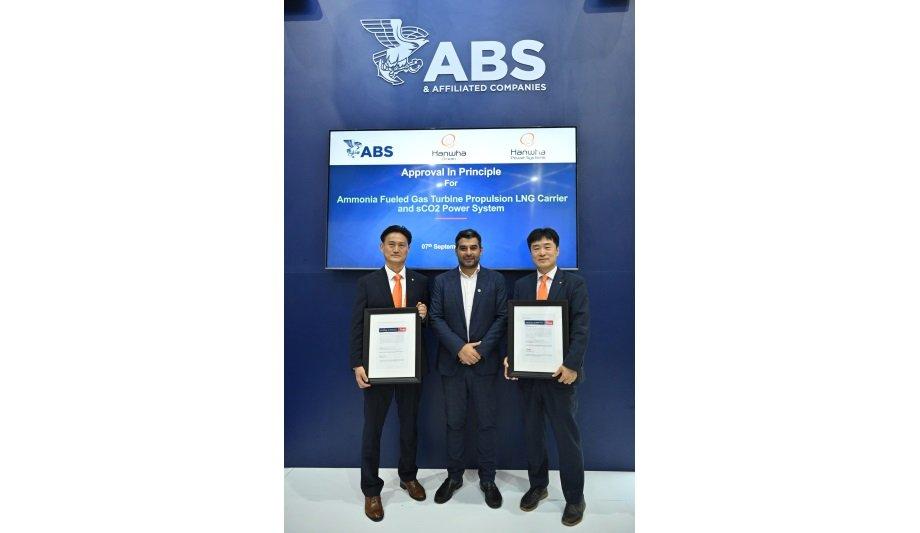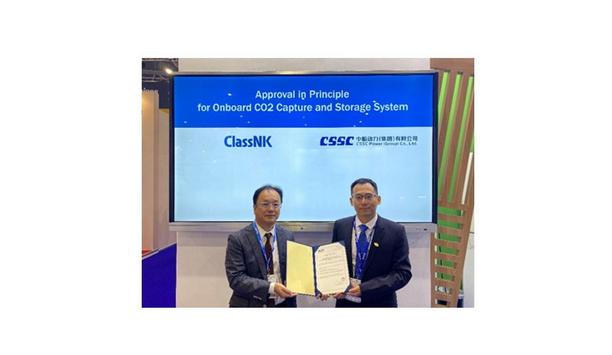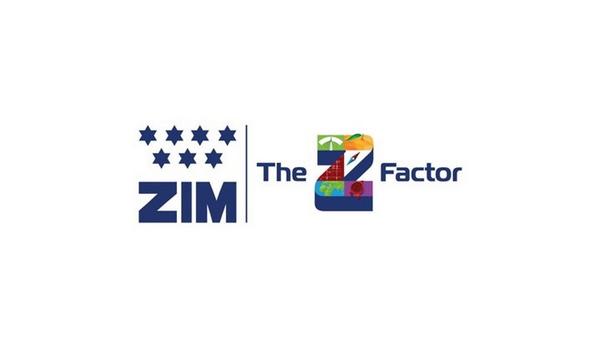ABS has issued an approval in principle (AIP) to Hanwha Ocean for its design of a liquefied natural gas (LNG) carrier equipped with an ammonia-fuelled gas turbine.
ABS also issued an AIP to Hanwha Power Systems for its supercritical carbon dioxide (sCO2) power system. Efficiency improvements are reported as a result of using sCO2 as a working fluid in the turbine.
Selective catalytic reduction
The LNG carrier can use ammonia and natural gas separately or simultaneously as fuel
The 174,000 cbm vessel would be the world’s first carbon emission-free LNG carrier. The LNG carrier can use ammonia and natural gas separately or simultaneously as fuel. If only ammonia is used as fuel, no carbon gas is emitted.
The design, which is smaller than a diesel engine, also incorporates Hanwha Power Systems’ exhaust gas waste heat recovery system (sCO2 Power System). Hanwha Ocean also says the system meets the nitrogen oxide (NOx) requirement without selective catalytic reduction (SCR) regardless of fuel and has significantly reduced methane slip.
Advanced gas carriers
“With a global focus on decarbonisation, this vessel design represents a big step forward in the shipping industry’s ambitions for zero-carbon cargo transport. ABS is proud to be able to support it and use our deep decarbonisation expertise to advance a more sustainable industry,” said Panos Koutsourakis, ABS Vice President of global Sustainability.
A spokesperson from Hanwha Ocean said: “Carbon neutrality is a ‘challenge to be overcome’ and an ‘opportunity to leap’ for shipyards. With this AIP, we will lead the competition for carbon-free ships.”
ABS is the world’s premier classification society for developing advanced gas carriers with more than 50 years of experience. ABS is pioneering the maritime industry in comprehensive decarbonisation and sustainability solutions.











